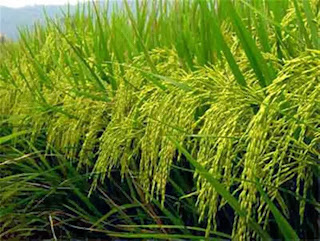By Prince Kelly Udebhulu.
Esan land is a land blessed by God. Nearly every plant that is plant-able could grow and do well on our soil. Nevertheless, many questions arise about a people with this kind of blessedness and bountifulness but who still produce food at subsistent level. We must ask ourselves why we are fading out of recognition as people known for rice production in Nigeria and compete with people who do not have our kind of endowment?. Why is this so? Why do we experience high cost of the foods that we produce here? Why must there be scarcity of rice in our communities? Anytime we hear about ofada rice in all fast foods centers or importation of rice from asia ; what comes to our mind? Where is our popular Ekpoma rice?
To import rice to meet the needs of our bludgeoning population is not a bad idea. However, there are certain factors we must consider. One, rice importation dealt the killer blow to the farms in Ekpoma, and exposes our people to the uncertainties generated from rice importation and consumption. Presently, there are speculations that the rice imported into this country contains strains and grains suitable only for animal domestication and husbandry. Those who know about this, like Friends of the Earth International, FoEI, a worldwide Non-Governmental Organization has led a consistent crusade against Monsanto and other big corporations involved in genetically modifying the genes of crops for a bumper harvest. In laboratory tests, FoEI claims it has carried out on imported rice in Nigeria and Sierra Leone, FoEI alleges that some of the rice imported to both countries contains SI strains, fit only for animal husbandry.
Ekpoma rice is relatively easy to produce and is grown for sale and for home consumption. In some areas there is a long tradition of rice growing, but for many, rice has been considered a luxury food for special occasions only. With the increased availability of rice, it has become part of the everyday diet of many in Nigeria.
The criticism of Ekpoma rice falls on the small stones that mix with it often times. After the rice has been parboiled, it is laid out on tarpaulins or tarred roads to dry. It is at this stage that there is a danger of small stones getting mixed up with the rice grains. Ekpoma rice faces competition from imported rice which favored for its long white grains. Imported rice, although widely considered less tasty, demands less preparation as it contains no stones. Removing stones from Ekpoma rice is to use a destoner or building designated threshing and drying floors among others will allow Ekpoma rice to compete with Ofada rice and imported rice from asia.
...to be continued
By Prince Kelly Udebhulu


No comments:
Post a Comment